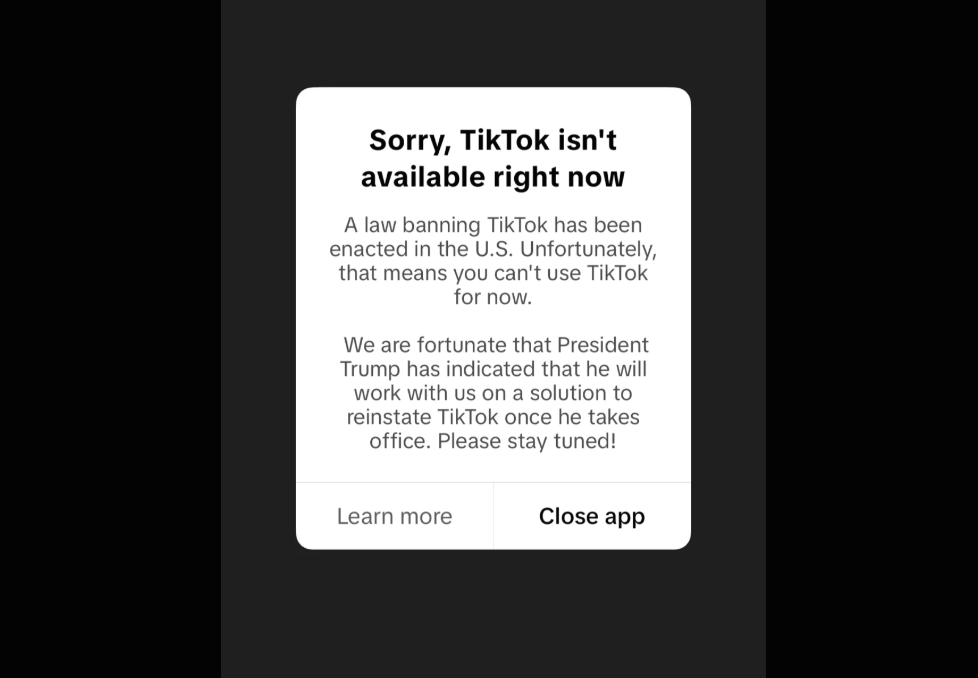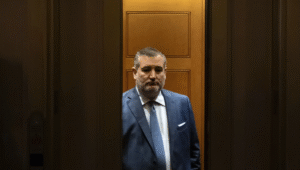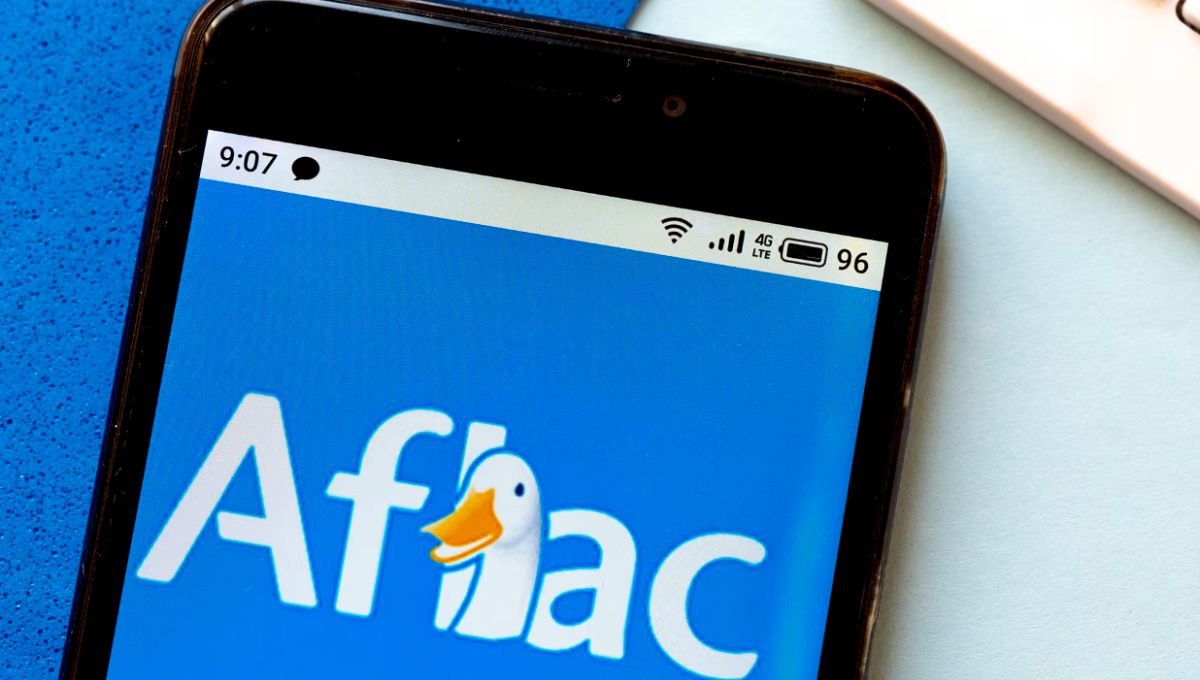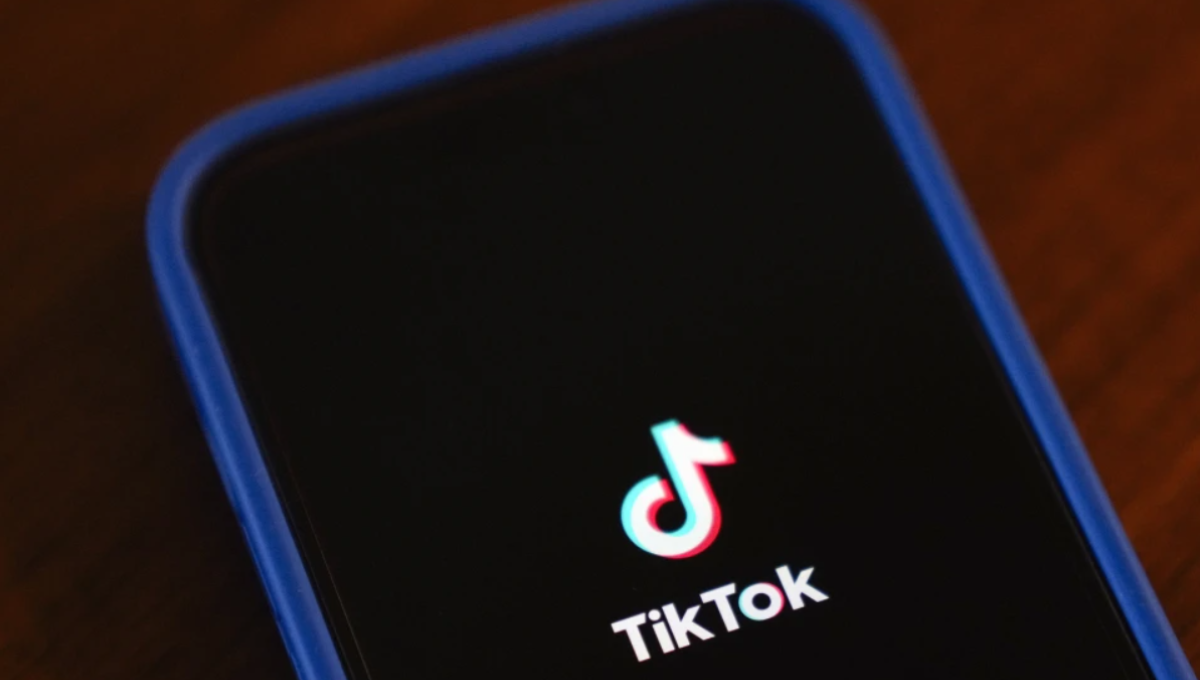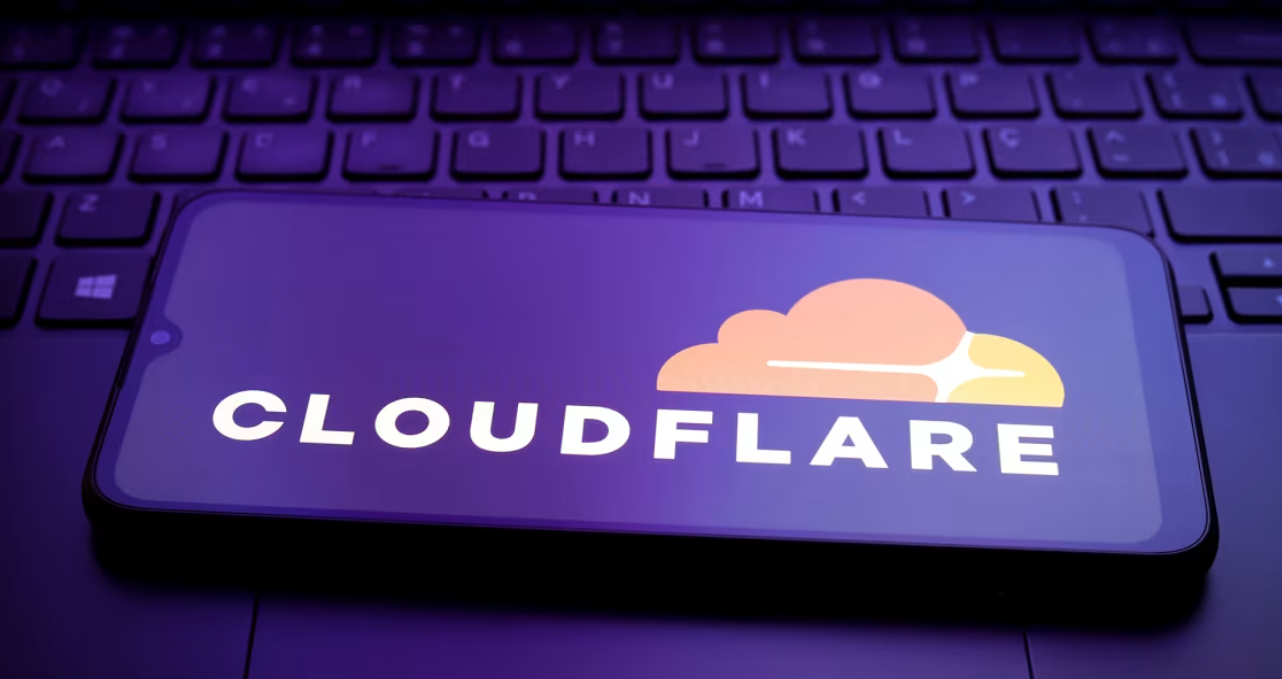Millions of TikTok users in the United States are no longer able to access the app as a federal ban takes effect. On Saturday evening, TikTok was removed from major app stores like Apple and Google, and its website notified users that the platform was unavailable. This blackout began just hours before the law banning TikTok officially came into force.
When users tried to open the TikTok app on Saturday, a pop-up message appeared, saying, “Sorry, TikTok isn’t available right now,” preventing them from watching videos. The message explained that the U.S. had passed a law banning TikTok, meaning the app could no longer be used.
The notice also mentioned that President-elect Donald Trump had promised to work on a solution to bring TikTok back once he took office, encouraging users to stay updated for any further developments.
The message presented to U.S. users only offers two choices: they can either close the app or click an option that redirects them to TikTok’s website. On the website, users are met with the same notification, along with the option to download their data. However, TikTok has previously stated that this process could take several days to complete.
Before the announcement went out, TikTok had informed users that its service would be “temporarily unavailable” and that the company was working to restore it in the U.S. as quickly as possible. However, it remains unclear how long the platform will remain offline.
In a Saturday interview with NBC News, President-elect Donald Trump mentioned he was considering granting TikTok a 90-day extension to continue operating. If this extension is approved, Trump suggested it would likely be announced on Monday, the day of his inauguration. TikTok CEO Shou Chew is expected to attend Trump’s inauguration and will have a prime seat at the event.
In Washington, both lawmakers and government officials have expressed concerns about TikTok, viewing it as a national security threat due to its ownership by the Chinese company ByteDance. ByteDance, based in Beijing, also owns the popular video editing app CapCut and the platform Lemon8, both of which were also unavailable on Saturday evening.
A federal law mandated that ByteDance sever its connection with TikTok by Sunday, or face a nationwide ban. The law was passed by Congress in April as part of a larger $95 billion package that included foreign aid for Ukraine and Israel. President Joe Biden quickly signed the legislation into law, but TikTok and ByteDance filed a lawsuit, citing First Amendment rights.
While defending the law in court, the Biden administration expressed concerns about TikTok collecting large amounts of U.S. user data, which could potentially be accessed by the Chinese government through coercion. Officials have also warned that TikTok’s algorithm, which determines what users see on the app, could be manipulated by Chinese authorities to influence content in subtle ways. However, the U.S. has not provided any public evidence to show that TikTok has shared user data with Chinese officials or altered its algorithm to serve Chinese interests.
On Friday, the Supreme Court unanimously ruled that the national security risks posed by TikTok’s connection to China outweighed concerns about limiting free speech for the app and its 170 million users in the United States.
Following the disruption of TikTok’s service, some voices in China criticized the U.S., accusing it of suppressing the popular app. Hu Xijin, a former editor-in-chief of the Chinese Communist Party-run Global Times and now a political commentator, posted on the Chinese social media platform Weibo, calling TikTok’s shutdown in the U.S. the “darkest moment in the development of the internet.”
He further argued that the U.S., which claims to support free speech, had carried out one of the most severe suppressions of an internet platform. TikTok does not operate in China, where ByteDance instead runs Douyin, a version of TikTok that adheres to China’s strict censorship rules.
Following the court ruling, both White House Press Secretary Karine Jean-Pierre and Deputy Attorney General Lisa Monaco stated that the Biden administration would leave the implementation of the law to President-elect Donald Trump, as his inauguration was scheduled for the day after the ban went into effect.
However, TikTok warned on Friday evening that it would “be forced to go dark” unless the administration provided a clear statement to the companies—like Apple, Google, and Oracle—that facilitate its service in the U.S.
Jean-Pierre dismissed TikTok’s demand as a “stunt” and argued that there was no need for TikTok or other companies to take any action before Trump assumed office. Despite these comments from the administration, uncertainty remained about the situation until TikTok began blocking its service.
Under the new law, mobile app stores are prohibited from offering TikTok, and internet hosting services are banned from delivering it to U.S. users. Companies that violate this could face fines of up to $5,000 for each user who continues to access TikTok, potentially leading to significant penalties.
Experts noted that the law doesn’t specifically require TikTok to take down its platform, leaving it unclear whether the company voluntarily shut it down or was forced to do so after losing support from its tech providers. TikTok did not respond to inquiries this week regarding its plans.
The law also allows the sitting president to extend the deadline by 90 days if a sale of TikTok is underway. However, no clear buyers have emerged, and ByteDance has stated that it has no intention of selling TikTok.
On Saturday, the AI startup Perplexity AI submitted a proposal to ByteDance to create a new entity that would merge Perplexity with TikTok’s U.S. operations, according to sources familiar with the matter. However, Perplexity is not seeking to purchase TikTok’s algorithm, which has been a key factor in the platform’s success.
Other investors have also shown interest in TikTok. “Shark Tank” star Kevin O’Leary recently revealed that he and billionaire Frank McCourt had put together a consortium of investors offering ByteDance $20 billion in cash. Additionally, former Treasury Secretary Steven Mnuchin mentioned last year that he was assembling a group of investors to buy TikTok.
